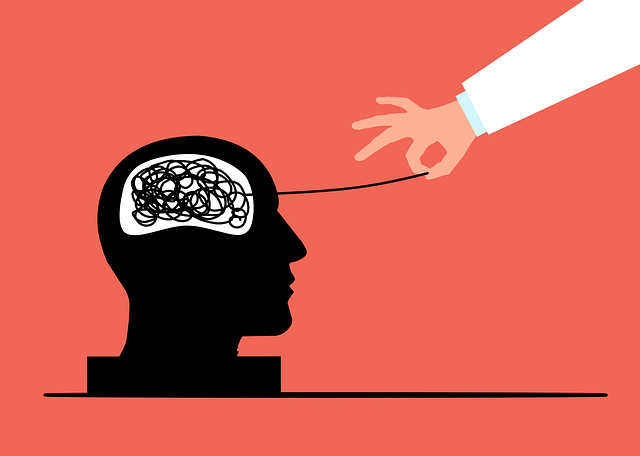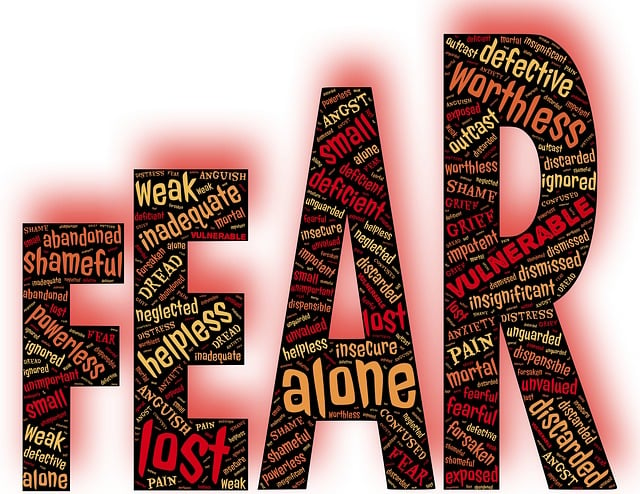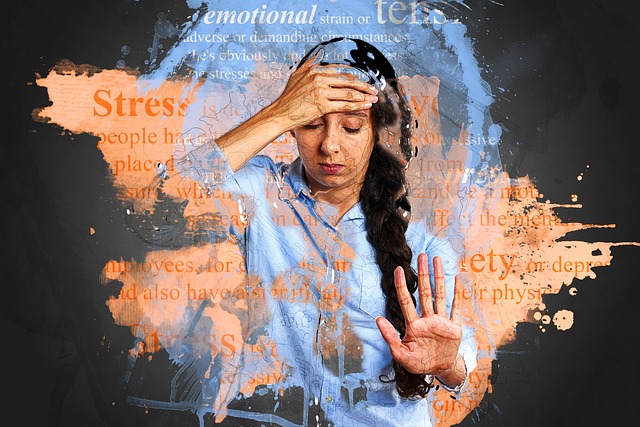Anxiety disorders disrupt daily life with excessive fear and worry. Early intervention through professional help like cognitive-behavioral therapy (CBT) is crucial, empowering individuals to manage symptoms by challenging negative thoughts and facing fears. Counseling provides a safe space for understanding and coping with anxiety using evidence-based techniques. CBT, proven effective in treating various disorders, focuses on changing thought patterns and behaviors. Mindfulness practices and relaxation techniques enhance self-awareness and reduce physical tension. A holistic approach combining therapy, support groups, and lifestyle adjustments offers lasting coping strategies for effective anxiety management.
Understanding Anxiety Disorders: Types and Symptoms

Anxiety disorders are a group of mental health conditions characterized by excessive and persistent fear, worry, or anxiety that interfere with daily life. They can manifest in various forms, each with its unique set of symptoms. Generalized Anxiety Disorder (GAD) is marked by excessive, uncontrollable worry about everyday matters, while Panic Disorder involves recurrent, unexpected panic attacks accompanied by intense fear. Social Anxiety Disorder, as the name suggests, causes significant distress in social situations due to fear of judgment or embarrassment. Obsessive-Compulsive Disorder (OCD) involves intrusive thoughts (obsessions) and repetitive behaviors (compulsions) aimed at reducing anxiety.
Recognizing the symptoms is crucial for seeking effective anxiety treatment. Individuals with anxiety disorders may experience physical manifestations like restlessness, fatigue, muscle tension, difficulty concentrating, irritability, and sleep disturbances. They might also engage in avoidance behaviors to cope, further exacerbating their condition. Early intervention and professional help are essential to manage these disorders. Through therapy, such as cognitive-behavioral therapy (CBT), individuals can learn coping strategies, challenge negative thought patterns, and gradually face their fears, leading to improved quality of life and reduced anxiety symptoms.
The Role of Counseling in Anxiety Treatment

Counseling plays a pivotal role in anxiety treatment, offering individuals a safe and supportive space to explore and manage their symptoms. Through therapy sessions, clients can gain valuable insights into the underlying causes of their anxiety, whether it’s rooted in past traumas, cognitive distortions, or environmental factors. Skilled counselors employ various evidence-based techniques tailored to each person’s unique needs. These methods include cognitive-behavioral therapy (CBT), mindfulness practices, exposure therapy, and more, empowering individuals with effective coping strategies to navigate and reduce anxiety-provoking situations.
By engaging in regular counseling sessions, individuals can develop personalized plans for managing their anxiety disorders. Counselors help clients identify unhealthy thought patterns and replace them with healthier, more adaptive ones. This process fosters self-awareness and resilience, enabling people to better regulate their emotions and responses to stressful or anxious triggers. Counseling also provides a platform for individuals to practice new skills in a safe environment before applying them to real-life challenges, ultimately enhancing their overall well-being and quality of life.
Cognitive-Behavioral Therapy (CBT): A Popular Approach

Cognitive-Behavioral Therapy (CBT) is a widely recognized and effective approach for managing anxiety disorders, making it a popular choice among many counseling services. This therapy focuses on identifying and changing negative thought patterns and behaviors that contribute to feelings of anxiety. By challenging distorted thoughts and learning new coping strategies, individuals can gain a better understanding of their anxiety triggers and develop more adaptive responses. CBT encourages patients to actively participate in their own healing process through various techniques, such as homework assignments, self-monitoring, and exposure therapy.
This evidence-based method has consistently shown promising results in treating several types of anxiety disorders, including generalized anxiety disorder (GAD), panic attacks, and obsessive-compulsive disorder (OCD). CBT offers a structured framework that enables individuals to confront their fears and develop long-lasting skills for managing stress and anxiety. Many counseling centers now incorporate CBT into their anxiety treatment programs due to its effectiveness and ability to empower clients with practical tools for improving their mental well-being.
Other Effective Therapies for Anxiety Management

Creating a Supportive Environment for Healing

In the journey towards overcoming anxiety disorders, creating a supportive environment is paramount for healing. A safe and non-judgmental space where individuals feel understood and accepted is essential for effective anxiety treatment. Therapists skilled in anxiety counseling play a crucial role in fostering this environment, employing techniques to make clients feel comfortable and secure. This involves active listening, empathy, and tailored strategies to address individual needs.
The counseling room becomes a sanctuary where clients can openly discuss their fears, concerns, and experiences without fear of ridicule or rejection. Such an atmosphere encourages vulnerability, which is vital for processing emotions and developing coping mechanisms. Through consistent support and encouragement, individuals with anxiety disorders can gradually build resilience, gain self-confidence, and take back control over their lives.
Incorporating Mindfulness and Relaxation Techniques

Incorporating mindfulness and relaxation techniques is a powerful approach within anxiety disorder counseling services, offering clients practical tools to manage their symptoms effectively. These strategies encourage individuals to focus on the present moment, fostering a sense of calm and grounding. Through guided meditations and awareness exercises, counselors help clients identify and disrupt anxious thoughts, replacing them with a deeper connection to their breath and bodily sensations.
By integrating mindfulness into anxiety treatment, individuals can develop enhanced self-awareness, enabling them to recognize early signs of anxiety and respond with tailored coping mechanisms. Relaxation techniques, such as deep breathing, progressive muscle relaxation, and yoga, provide immediate relief from physical tension and heightened stress levels often associated with anxiety disorders. These practices empower clients to take charge of their well-being, promoting long-term mental resilience and improved quality of life.
Medication and Its Place in Anxiety Treatment

Building Coping Strategies for Long-Term Success

Anxiety disorder counseling services aim to empower individuals with effective coping strategies for long-term success in managing their anxiety. Through therapy, clients learn to identify triggers and develop personalized techniques to mitigate symptoms. Cognitive-behavioral therapy (CBT), for instance, teaches individuals to challenge negative thought patterns and replace them with more realistic, positive ones. This approach has been proven highly effective in the anxiety treatment process.
In addition to CBT, counseling sessions often incorporate mindfulness practices, relaxation techniques, and stress management strategies. By integrating these tools into daily routines, individuals can enhance their ability to stay calm and focused under pressure. The goal is not just to alleviate symptoms temporarily but to equip clients with long-lasting coping mechanisms that enable them to thrive in various aspects of life, even in stressful situations.
Finding the Right Counselor: Tips for Client Selection

